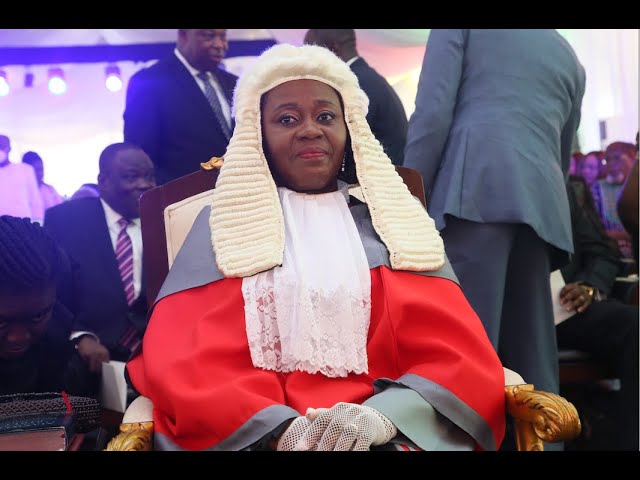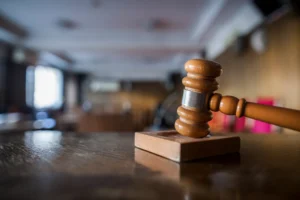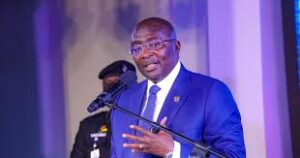Supreme Court to Hear Injunction Application Challenging Chief Justice Removal Process on April 2nd

The legal dispute regarding the potential removal of Chief Justice Gertrude Torkonoo has taken a significant turn as the Supreme Court of Ghana prepares to hear an injunction application on April 2, 2025. The case was filed by Vincent Assafuah, the Member of Parliament for Old Tafo, from the New Patriotic Party (NPP). Assafuah is challenging the procedure being employed by the President of Ghana to potentially remove the Chief Justice following the receipt of three petitions.
This legal challenge emerged after Chief Justice Torkonoo sent a letter to the President, copied to various stakeholders, requesting to be provided with the three petitions seeking her removal. The petitions, which have not been disclosed in detail, are part of a process laid out in the 1992 Constitution of Ghana, under which the Chief Justice can be removed. The Chief Justice’s request to receive these petitions came soon after Assafuah filed his suit, questioning the manner in which the procedure was being conducted.
The crux of Assafuah’s legal argument is that the President must first notify the Chief Justice of the petitions against her, giving her the opportunity to respond before the President proceeds to consult the Council of State, as required by Article 146 of the Constitution. Assafuah, who is represented by Godfred Dame, the former Attorney-General of Ghana, contends that this step is vital to ensuring a fair and transparent process in matters as serious as the removal of the country’s highest judicial officer.
According to the government, the three petitions have already been forwarded to the Council of State for review. Felix Kwakye Ofosu, the Minister for Government Communications, confirmed this in a public statement, asserting that the process is in line with the constitutional framework set out in Article 146 of the Constitution. However, the exact grounds of the petitions against the Chief Justice have not been disclosed, which has added an element of uncertainty to the case.
In her letter, dated March 27, 2025, Chief Justice Torkonoo emphasized the need for fairness in the process, urging the President and the Council of State to provide her with the petitions in order for her to prepare a response. She requested that the President grant her at least seven days after receiving the petitions to formulate her response. This response, she believes, should be part of the material considered during the President’s consultations with the Council of State, which may ultimately lead to the formation of a Committee of Inquiry under Article 146(7) of the Constitution.
Assafuah’s legal suit, which invokes the original jurisdiction of the Supreme Court, seeks multiple declarations regarding the interpretation of the constitutional provisions related to the removal of a Chief Justice. Specifically, Assafuah argues that the President must first notify the Chief Justice of the petitions against her and obtain her comments before referring the matter to the Council of State. The suit asserts that failing to do so would violate several constitutional provisions, including Articles 146(6), 127(1) and (2), and the right to a fair hearing.
The case raises important questions about the independence of the judiciary in Ghana. Assafuah’s legal team contends that any failure to notify the Chief Justice and allow her to respond before proceeding with the consultation process would undermine the Chief Justice’s security of tenure and interfere with the independence of the judiciary. Furthermore, the plaintiffs argue that a failure to ensure that the Chief Justice’s comments are considered before the consultation would render the process unconstitutional and potentially null and void.
The outcome of this case has the potential to significantly influence future procedures for removing a Chief Justice in Ghana. It will also set a precedent for how the Constitution is interpreted with respect to the independence of the judiciary and the fairness of processes involving the highest judicial officer in the country. As the Supreme Court prepares to hear this matter, its decision could have far-reaching implications for the separation of powers and the protection of judicial independence in Ghana’s legal system.






